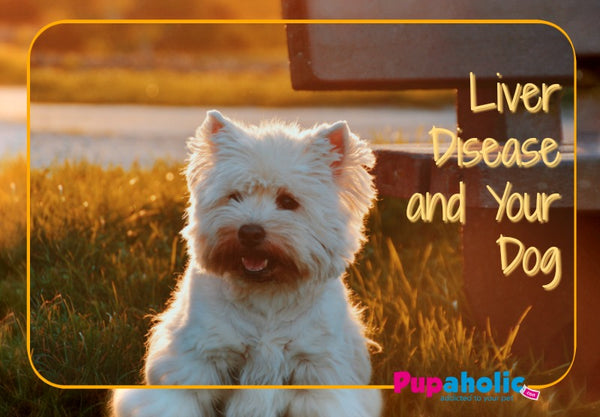Blog

All You Need to Know About Liver Disease in Dogs
As a dog owner, we want our beloved pets to be both happy and healthy. Part of ensuring that includes knowing when there is a problem with vital organs such as the liver. An unhealthy dog liver can be both painful and ultimately deadly to a dog.
Here is some information to educate you on the signs, symptoms, and treatment of liver disease in dogs.
Liver Disease: What to Look For
The liver is a main and vital organ in a dog. It works to detoxify the blood, break down drugs, metabolizes energy sources, stores vitamins, makes bile acids that aid in digestion and also makes proteins that clot the blood. Since the liver is responsible for so much, liver disease can easily present as other symptoms, so it is important to get your dog to the vet if there are any concerns.
Most dogs that have liver disease have jaundice, or a yellow color to their eyes, skin, gums, and ears. A dog may also have seizures, disorientation, depression, blindness or show signs of changes in their personality when battling liver disease. They may also have a decreased appetite, vomiting and diarrhea, weight loss, increased drinking and changes in their stool color.
What Leads to Liver Disease
There are many causes of liver disease in dogs. Aging and genetics are two ways that the disease develops. Infection or trauma to the liver area can also cause liver disease. There are also medications that can bring it on. Some other causes of liver disease include:
- Ingesting certain plants, herbs, mushrooms, and algae
- Molds that grow on corn and are ingested
- Heartworms left untreated
- Diabetes
- Pancreatic problems
- Using a painkiller for a long amount of time
- Continual eating of fatty foods
Treatment
If your dog shows signs and symptoms of liver disease, a vet will normally ask you many questions about your dog's diet and environments they have been exposed to. The vet may also run blood tests, X-rays, ultrasounds and perform a biopsy to confirm that liver disease is actually the culprit.
If liver disease is confirmed, the amount of damage to your dog's liver will be determined and then (depending on the severity) diet changes, supplements, medications or surgery will be prescribed to treat the disease.
Diet changes are often suggested to make sure proper nutrients and calories needed are given to the liver. Supplements play a huge role to ensure the liver can properly recover. Medications will work to control liver problems and if your dog is already on a medication that may be the cause of the liver disease, they may be altered or replaced by another medication. Surgery may be needed if the liver disease is from tumors or cysts.
Prevention
Liver disease can be prevented to an extent. Dogs need to see their vets yearly for exams and vaccinations. Vets also need to be aware of any and all medications or supplements your dog is taking. Always feed your dog a proper diet, which needs to keep fatty foods at a minimum. Never let your dog loose or alone in areas where plants or insects that could cause harm them may be.
Living With A Dog with Liver Disease
Dog owners who have a dog with liver disease need to take steps to control the dog’s environment to help the dog recover from the disease. Following the diet given by the vet, making sure all medications are given on time and keeping a dog calm and comfortable will all help to get your dog back on his feet. Just like us humans, all dogs need love and comfort when they are sick and recovering.
Although liver disease can be fatal, knowing the signs and watching dogs closely will help to spot the disease quicker and enables a dog to get the treatment they need. No one knows your dog better than you so always trust instinct and never be afraid to contact a vet.
